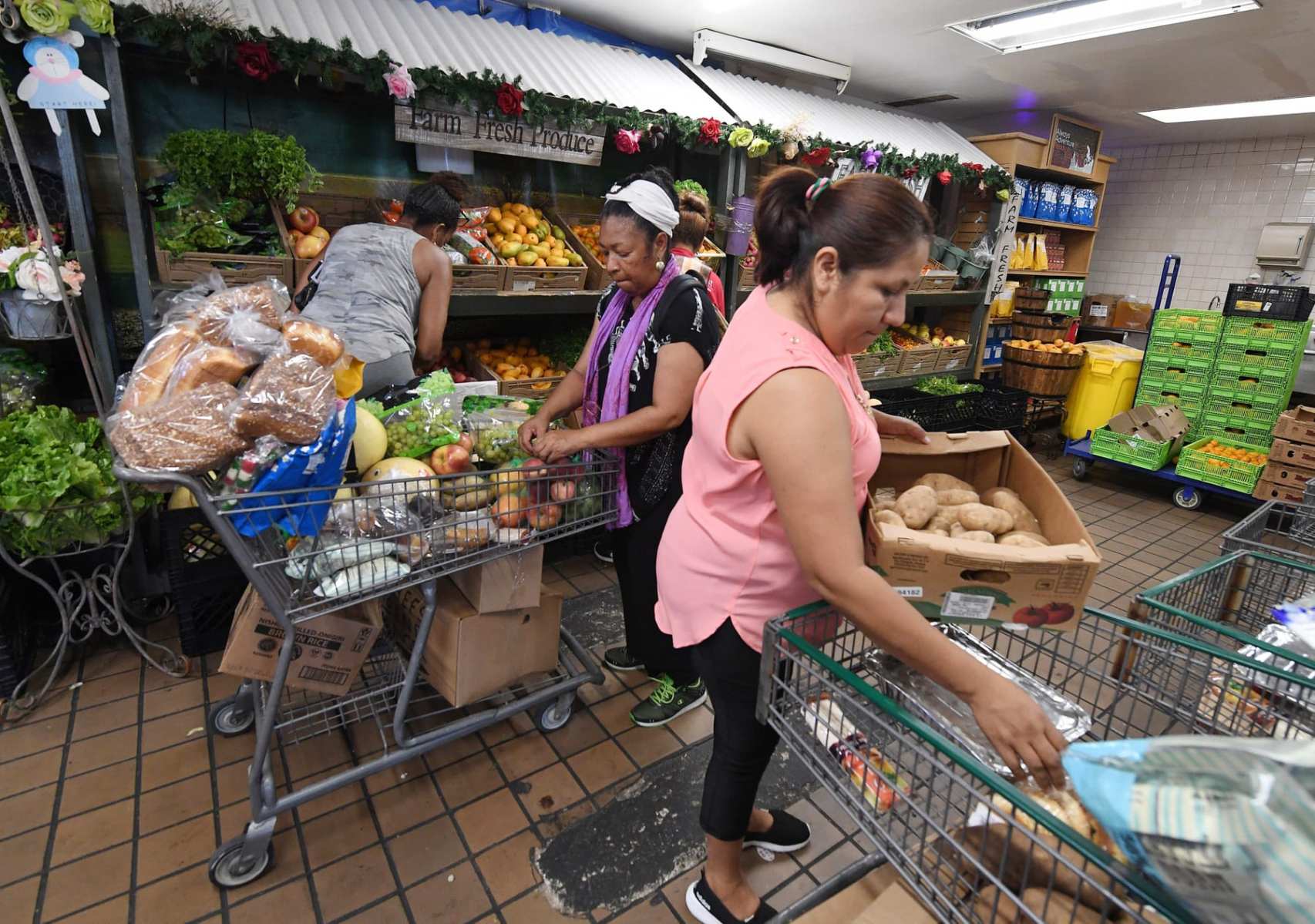The Biden administration has abandoned a federal proposal to impose stricter work requirements for people seeking food stamps — a policy that could have affected more than 1.3 million people, in particular the Black women and Latinas who remain disproportionately impacted by the recession.
The proposal, put forth in 2018 by the Trump administration, would have made it significantly harder for states to opt out of the work requirements for people receiving benefits from the Supplemental Nutrition Assistance Program (SNAP). Typically, states with high unemployment rates can seek waivers from the federal government so that, if it is already difficult to find work, people who are unemployed can still access SNAP benefits.
The rule never took effect. In March 2020, the U.S. District Court for Washington, D.C., issued a national injunction blocking the Trump rule, pending results from a lawsuit advocacy groups had filed opposing the rule. Federal coronavirus legislation then suspended any work requirements for people seeking SNAP benefits.
The policy would have been particularly damaging for people who lost work in the past year and have struggled to find employment. Per federal jobs data, high unemployment numbers for Black women and Latinas during the pandemic have not subsequently improved.
Now, the Biden administration’s move to withdraw the rule means that, in many states, people who are unemployed will remain eligible for food stamps even after the coronavirus crisis ends.
The Trump administration had anticipated about 700,000 people would have lost access to food stamps if the policy took effect. But an independent analysis by the Brookings Institution, which looked at individual estimates from every state, put the figure much higher: at least 1.3 million people. That estimate was done before the COVID-19 crisis spurred far worse economic conditions.
“It would be horrendous for the economy for all of these people who lost income to be kicked off SNAP in three months because they’re not working, because there are no jobs available,” said Lauren Bauer, an economics fellow at Brookings who has studied the policy’s effects. “Unlike in previous recessions where male-dominated industries tended to be more affected … women would have been negatively affected by a work requirement for SNAP more than usual.”
Food insecurity — the lack of consistent, stable access to healthy food — remains a national crisis, federal data suggests. As of early March, 22 million adults, or about 11 percent of all U.S. adults, reported not having enough food for their households at some point in the past week. Research suggests that increasing SNAP benefits is one of the most effective ways to combat the problem.
The Trump proposal would have affected only people without dependents — meaning single mothers, who are particularly vulnerable to food insecurity, would not necessarily have been affected. But parents who do not live with their children would have been subject to the work requirements, Bauer noted. And women who do not have children would have been particularly vulnerable.
“We’re thinking about older Black and Latina women — and younger ones,” Bauer said.





